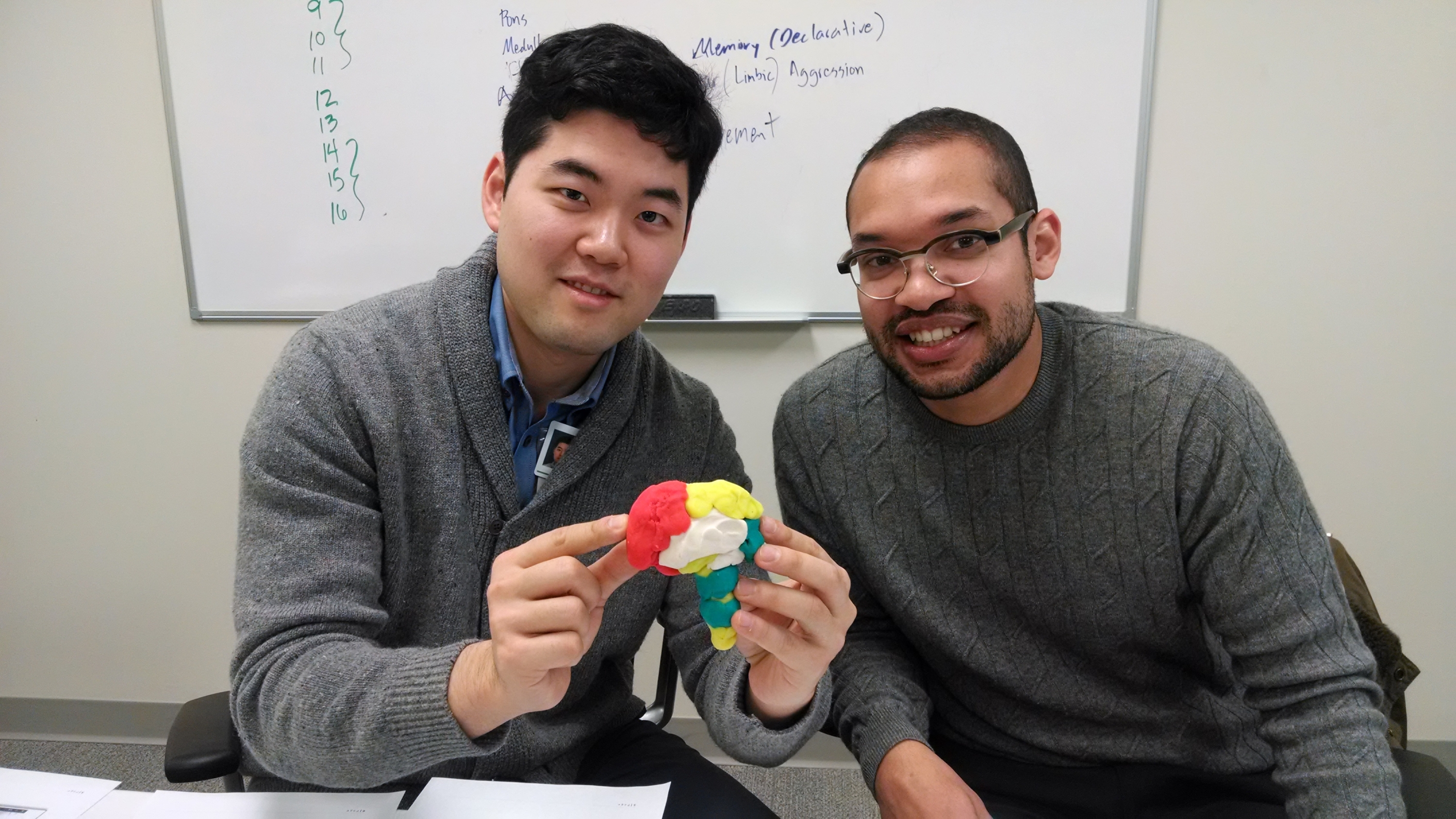
The Didactic Curriculum, guided by principles of adult learning theory, is a cornerstone of the resident learning experience at Emory. Faculty are encouraged to create innovative, interactive sessions that actively engage learners, enhance retention, incorporate technology when appropriate and foster a spirit of lifelong learning and curiosity.
Didactics are held on Wednesday mornings at 12 Executive Park, with protected time for all classes to attend. PGY-1 residents are largely based at Grady Hospital, while PGY-2 through PGY-4 residents attend their didactics at 12 Executive Park. The curriculum is organized into modules, each led by a faculty member who is a subject-matter expert. Lectures are intentionally distributed across the four years to align with the residents’ progressive clinical experiences. Among the largest and most comprehensive modules are Psychotherapy, Mood and Anxiety Disorders and Psychotic Disorders.
During off-service months, PGY-1 residents are still able to attend Wednesday morning psychiatry didactics to maintain continuity in their psychiatric education. In addition to the core Wednesday curriculum, PGY-1 and PGY-2 residents have access to site-specific educational opportunities at Grady, Emory Decatur Hospital and the VA, enhancing their early training with setting-relevant experiences.
Resident feedback is a valued part of the curriculum’s evolution. Evaluations are completed online, and results are reviewed monthly by the Education Subcommittee, a group of residents and faculty who meet to analyze feedback and explore innovative ways to further enhance the delivery and effectiveness of the curriculum.

Team-Based Learning (TBL) encourages residents to prepare independently, collaborate in small groups, and apply psychiatric knowledge to real-world clinical challenges.
Please see below to learn about the specific curriculum for each year of the residency.
Download the map for the overall seminar distribution.
PGY-1
- Addiction
- Case Conference
- Cultural, Community and Global Context
- Diagnostic Interviewing
- Life After Residency
- Neuroscience
- Process Group
- Psychotic Disorders
- Team-Based Learning
PGY-2
- Case Conference
- Childhood and Development
- Clinical Neurology for Psychiatrists
- Consultation-Liaison
- Cultural, Community and Global Context
- Evidence-Based Psychiatry
- Geriatric Psychiatry
- Life After Residency
- Process Group
- Psychotherapies
- Team-Based Learning
PGY-3
- Addiction
- Case Conference
- Childhood and Development
- Clinical Neurology for Psychiatrists
- Cultural, Community and Global Context
- Eating Disorders
- Forensic Psychiatry
- Leadership and Management
- Life After Residency
- Mood and Anxiety Disorders
- Personality Disorders
- Professional Responsibilities
- Psychotherapies
- Team-Based Learning
- Women's Mental Health
PGY-4
- Case Conference
- Geriatric Psychiatry
- History of Psychiatry
- Leadership and Management
- Life After Residency
- Mood and Anxiety Disorders
- Psychotherapies
- Sleep Disorders
- Team-Based Learning
- Women's Mental Health




